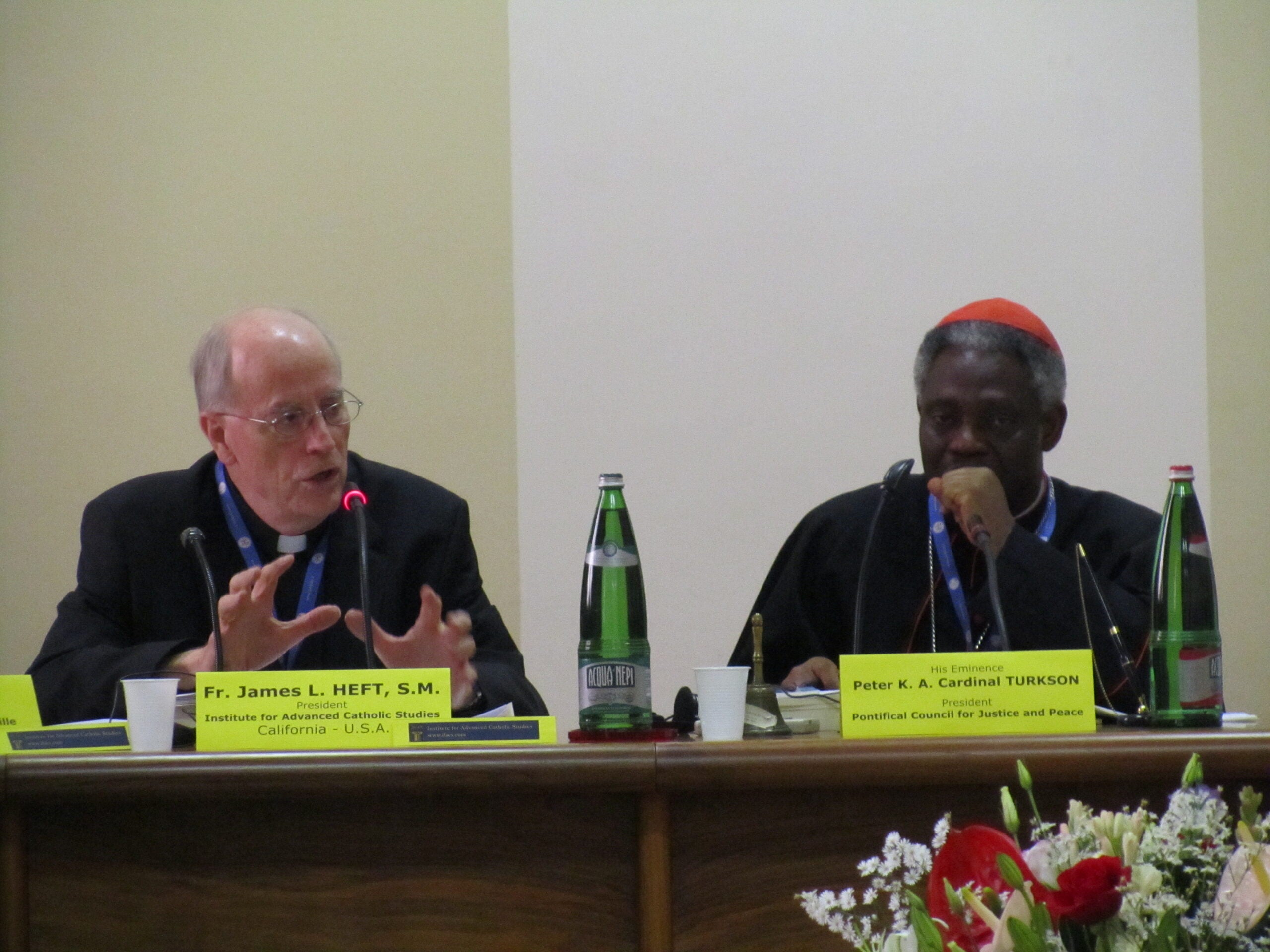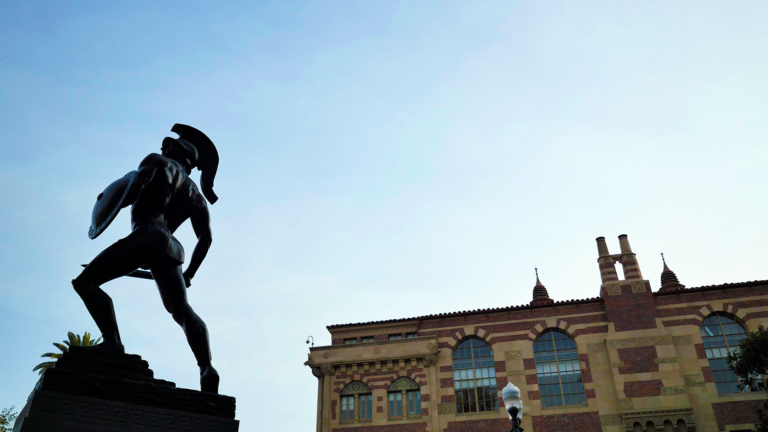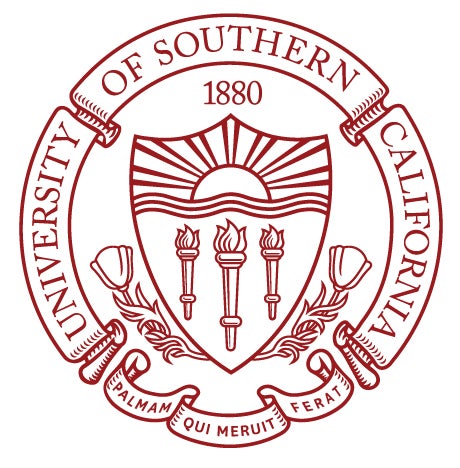The Institute for Advanced Catholic Studies was founded on September 29, 1998 to serve as a global hub for scholarship that fosters Catholic thought, imagination and experience. IACS is proudly located at the University of Southern California and promotes understanding between academic disciplines through the study and application of the long and rich Catholic intellectual tradition. This work is done through groundbreaking research, innovative projects and international conferences.
Originally incorporated in Washington D.C., IACS was founded by Fr. James L. Heft, S.M., professor of religion and former chancellor at the University of Dayton. Fr. Heft launched IACS with the goal of sponsoring and conducting research and scholarship on all aspects of the Catholic tradition, and to support and encourage the preservation and renewal of the intellectual, spiritual and cultural heritage of Catholicism.
IACS leaders initially looked to Europe for a home, but after conferring with several cardinals, they focused their search in the U.S. The IACS Board of Trustees decided in 2003 to locate the Institute at USC, which was selected over other top American universities, including Yale and Princeton.
With a new home secured, IACS began publishing research. The Institute’s first volume, Beyond Violence: Religious Sources of Social Transformation in Judaism, Christianity, and Islam was published in 2004. Other works followed, including Believing Scholars: Ten Catholic Intellectuals and Passing on the Faith. IACS officially moved in 2006 to the USC University Park Campus in Los Angeles and began a public lecture series a year later. The popular series continues today, featuring top scholars addressing a wide variety of topics, including interreligious dialogue, art, astronomy, film, science and economics.
In 2008, Paul Caron, one of the founding members of IACS and the former head of JP Morgan in Switzerland, along with current IACS trustee Daniel K. Finn, professor at St. John’s University and The College of St. Benedict, organized the first True Wealth of Nations conference to study Catholic social thought and economics.

True Wealth of Nations soon become the Institute’s signature research program, leading to the publication of five books: The True Wealth of Nations: Catholic Social Thought and Economic Life, Distant Markets, Distant Harms: Economic Complicity and Christian Ethics, The Moral Dynamics of Economic Life: An Extension and Critique of Caritas in Veritate and Empirical Foundations of the Common Good: What Theology Can Learn from Social Science. Its latest release, Business Ethics and Catholic Social Thought, was published by Georgetown University Press in 2021.
IACS, meanwhile, continued strengthening its international presence through conferences with scholars and religious leaders from across the globe. In 2010, the Vatican hosted the Institute’s conference on Pope Benedict XVI’s encyclical, Caritas in veritate, to examine how its teachings apply in the U.S. The same year, the Institute’s first Generations in Dialogue cohort convened. The program engages widely-recognized senior Catholic scholars to share their time, expertise, and wisdom with junior scholars, who all convene for discussions, personal reflections, shared prayer and presentations.
In 2018, Fr. Heft asked the Board of Trustees to begin a search for a new leader and, after an international search, Rev. Dorian Llywelyn, S.J., was selected as the Institute’s second president. Fr. Llywelyn began his tenure leading IACS in July 2020 and served for two years and a half before stepping down in December 2022 after accepting a new assignment in higher education from the Society of Jesus. Fr. Heft continues to serve the Institute as president emeritus.
In July 2023, renowned sociologist Richard L. Wood, Ph.D., was selected by the Board of Trustees to serve as the Institute’s next president.
IACS continues its work developing the intellectual Catholic tradition and promoting understanding between academic disciplines with new projects and initiatives, including Guadalupe — At the Break of Dawn, the groundbreaking project with Loyola Marymount University, and Humanizing Networks: Human Fraternity in the Digital Age, a collaboration with the Vatican’s pontifical academies of science and social sciences exploring the role of the Catholic intellectual tradition in guiding the ethics of new and emerging digital technology, including artificial intelligence and social media.


